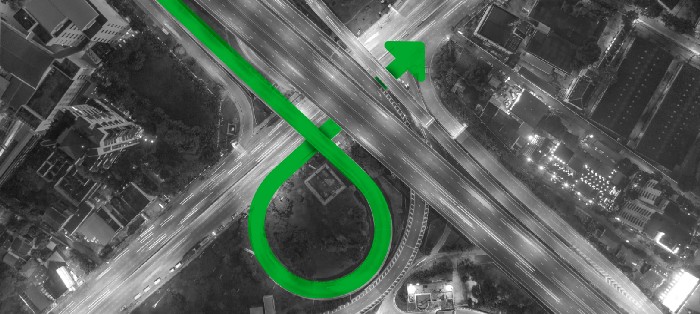Turn off the phone, tune into yourself, and be productive when it counts
Have you ever found yourself staring at your phone or laptop, mindlessly checking social media or going down an internet rabbit hole when you’re supposed to be doing something else? So have I.
My name is Rob, and I’m addicted to information. More specifically, I am addicted to the infinite and immediately available mental stimulation the internet offers in the form of information. And, according to scientists, I’m not alone. Information addiction is real, and is a perfect outlet for procrastination.
But procrastination can lead to negative consequences, from mental fatigue to missed opportunities that frustrate me when it was something that I really wanted to do. How did I become addicted to something so potentially destructive? And how do I recover for the sake of productivity? The answer to both questions is the same: neuroplasticity.
“What fires together wires together” — Donald Hebb
Neuroplasticity?
Neuroplasticity, discovered back in the 1940’s by Donald Hebb, is how the brain changes (for better or worse) in response to repeated experience.
“Heady” stuff? Here’s a real-world example you might relate to:
Procrastination is a fact of life. According to Piers Steel, author of The Procrastination Equation, about 95 percent of people admit to putting off work (perhaps the other 5 percent didn’t get around to completing the survey). So, it’s safe to assume you, like me, are a procrastinator at times…you might even be procrastinating now. The good news is we can learn ourselves out of procrastination the same way we learned ourselves into it — by taking small, consistent actions that offer our brain a reward.
Use your mind to change your mind
There are seemingly endless strategies to overcome internet-fueled procrastination. I found the process below especially helpful, and hope you will as well.

Accept reality
You’re going to procrastinate from time to time — you’re only human and can’t do it all. In fact, it’s possible that beating ourselves up leads to more procrastination, making it harder to be effective. Have self-compassion and recognize there is a time for procrastination before and after your task, but for now, you must focus.
Disconnect from the internet
The internet and your smartphone will demand your attention subconsciously — you’ve trained your brain for that. Place your phone in another room, with notifications and sound off. If you have to work on your computer, turn Wi-Fi off.
Be mindful
Take a few minutes to observe your thoughts and emotions. Mindfulness meditation, particularly breathing meditation, a great tool for insight. When I began meditating, I held the common belief that to meditate “correctly,” my mind had to become totally blank. But to be truly mindful is to be aware of yourself without judgment. Noticing my thoughts and the emotions around them helps me focus.
Prioritize what’s important
If, while observing, you noticed fear or anxiety around starting (or not finishing) a particular task, pay attention. These emotions are a great indicator of why you’re procrastinating. Whether you think you’re unable to do something well or simply want to avoid having to deal with it at all, use this insight to prioritize your tasks, and make the decision to work on one that seems especially difficult. Remember, the goal is not only to finish a task but to make it easier to be productive in the future. Accomplishing difficult tasks will bring you the positive feelings necessary to rewire your brain.
Focus on one thing at a time
Once you’ve decided where to begin, focus on how to organize the task into small pieces (SMART goals are a great tool here). Don’t think about multi-tasking — this is single-tasking. Keep your focus on one part of the task at a time to avoid being overwhelmed about the outcome of the final product and the work required to get there.

Jump in
The hardest part of getting started is…getting started. A lot of this is because of the way we judge our thoughts — dismissing our efforts before giving them a chance to develop. Let go of your expectations and judgments and just BEGIN. Sometimes you can find a shortcut to help overcome the initial obstacles to productivity. For instance, templates are a great way to remove the stress of staring at a blank page. Every task likely has a similar hack to ease you into action.
Take a (timed) break
If you feel yourself getting overwhelmed, take a break. Set a timer for five minutes and do something else. You could return to breathing to clear your mind again, do some star jumps to get your blood flowing, or go outside for some fresh air — but do not allow yourself to check the internet or your phone.

CYA: Celebrate Your Accomplishments
When your task is finished, pat yourself on the back; you’ve earned some self-esteem. Procrastination is usually a response to the unpleasant feelings associated with a task. Rewiring your brain requires sending yourself different messages. Recognizing that you can move through difficult emotions and accomplish your tasks is crucial to replacing your negative thought patterns. Each success rewires your brain so that the next time you’re faced with a difficult task, you will approach it with more confidence, patience, and focus — and less urge to check your phone.
Don’t worry about perfection
Once your task is done, let it go. You could that thing a million times, a million ways, and it would never be perfect — that’s just part of the deal. Accept imperfection, value the effort, and keep moving on to your next task.
Speaking of perfection, you likely won’t do any of these steps perfectly, but you’ll make progress. With repeated effort, you’ll become skilled at being productive when it matters, just like you became skilled at procrastinating. Be patient and kind to yourself as you grow. And, of course, give yourself a few minutes after you’re done with your task to hop on the internet for that sweet, sweet dopamine rush. That reminds me, I’ve only been on Facebook once this year but I’m still loving it here.
One of the reasons why procrastination is so prevalent is how misunderstood it is. There’s an incorrect view of it as a character flaw- an internal issue. It’s widely assumed that someone procrastinates because:
1. They are lazy and/or
2. They are bad at whatever it is they are deferring.
In fact, that’s rarely true. If it were, the sudden motivation produced by an impending deadline wouldn’t occur.
A student, having put off an assignment until the last minute, wouldn’t work all night to complete it. An author wouldn’t lock themselves away to complete a 50,000-word manuscript in a short time. Someone who can’t be bothered to clean their apartment wouldn’t happily work 18 hours a day to code their start-up.
If procrastination were a character flaw, we wouldn’t universally be able to conquer it when necessary. In fact, we procrastinate because of two reasons:
1. A lack of a clear idea of what to do and/or
2. A lack of a reason to do it.
Laziness and ineptitude have nothing to do with it, which is why we can reframe procrastination with two simple questions:
- What do I need to do?
- Why do I need to do it?
Motivation is fragile, but it is renewable. The best way to renew it is not with Pinterest quotes or watching Netflix. It’s by clarifying our reasons — ideally on paper.
If there’s no answer to those two question, it can be a sign that this isn’t worth doing.
When we have a purpose and a plan, procrastination doesn’t enter the equation. It goes beyond enjoyment, reaching fulfillment.
The cause is not laziness. It’s doubt. Confusion. Uncertainty. These are very real feelings that everyone experiences. These emotions cannot be trampled or ignored. Discipline can only take you so far without drive. These feelings have to be faced and resolved.
Sometimes that means taking the requisite time to reassess what we are doing and why. In the day to day mess for some of emails, paperwork, meetings, and minutiae, a sense of wider purpose can get lost. Even the most meaningful pursuit can become muddied. When that happens, on the micro and macro scale, procrastination is the result.
On the micro-scale, when a single task is being put off, moving the consequences to the present is an effective way to get it done.
Victor Hugo forced himself to finish The Hunchback of Notre Dame by instructing his maid to lock away all his clothes until he had completed the manuscript.
Demosthenes shaved half of his head so he would be too embarrassed to go out in public until he had spent 3 months working on his oration.
They had their wider purpose, but they dragged the future consequences of procrastinating into the present.
But on the macro scale, when we find ourselves struggling to do anything, the real answer is to find the necessary sense of purpose.
To connect the current task with our long-term goals and ambitions.
To recognize that this work is part of our role in the world.
Marcus Aurelius put it best in Meditations:
‘People who love what they do wear themselves down doing it, they even forget to wash or eat. Do you have less respect for your own nature than the engraver does for engraving, the dancer for the dance, the miser for money or the social climber for status? When they’re really possessed by what they do, they’d rather stop eating and sleeping than give up practicing their arts.’
The upside of procrastination is that it forces us to step back and ask the big questions.
Why am I doing this? Do I really want to do it? What am I actually doing?
Procrastination is not a sign of laziness or any sort of negative character trait.
The answer to ‘because my boss said so’ or ‘because I need to pass this exam’ can only take us so far. Our brains are smart and are designed to avoid wasting energy on anything which is not required for our survival. And the brain can only be fooled for so long before it rebels.
The ability to focus is one of the most important skills we can develop. Meaningful work does not get done in a few…
We can stop seeing procrastination as a sign of weakness and start recognizing its significance.
Procrastination is an important warning sign. In academic situations, it can be a red flag that current studies do not align with long-term aspirations. Or that a dream job is proving to be unfulfilling. It can be a sign of burnout, or of a deep sense of confusion.
This doesn’t mean that spending an evening on Facebook is a springboard for some dramatic new self-knowledge. Instead, it means that we should look at our behavior as part of a bigger picture, and stop labelling natural responses as character flaws.
Procrastination is an intervention staged by your brain.
Some part of you is not buying the current plan.
Some part of you wants a bigger goal, a different direction, a fresh purpose. Listen to it.

